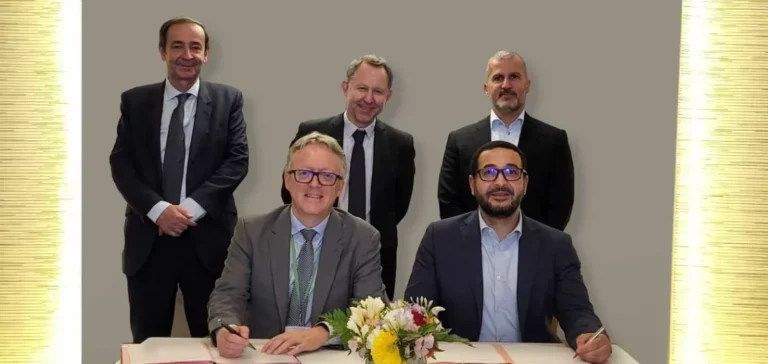French group Framatome has signed a strategic commercial agreement with Emirates Nuclear Energy Company (ENEC) for the supply of nuclear fuel to the Barakah nuclear plant, located in the United Arab Emirates (UAE). The contract includes the delivery of complete fuel assemblies along with engineering and technical support services.
A partnership for the UAE’s energy security
This collaboration forms part of ENEC’s supply chain diversification plan aimed at ensuring continuous long-term energy delivery. The Barakah plant, equipped with South Korean APR-1400 technology reactors, requires a reliable fuel supply to maintain full-capacity operations. The exact volume and duration of the contract have not been disclosed.
The fuel assemblies will be produced at Framatome’s facility in Richland, United States, which has over 55 years of experience in manufacturing nuclear fuel. The site has received the highest rating from the Nuclear Regulatory Commission (NRC) nine times as part of its biennial performance reviews.
Framatome expands its footprint in the Middle East
Framatome has already delivered over 6,000 fuel assemblies for reactors of similar design to those used at Barakah. The company will also provide technical services from its U.S. headquarters in Lynchburg, Virginia. This deal strengthens the company’s position in the Middle East nuclear market, where demand for technically capable industrial partners remains high.
Mohamed Al Hammadi, Chief Executive Officer of ENEC, stated that the diversification “enhances the security and reliability of our supply chain” while maintaining Barakah’s operations in line with international standards.
Barakah continues its scale-up
The Barakah plant is the first in the Arab world to produce large-scale nuclear electricity. It is expected to eventually supply up to 25% of the UAE’s national electricity demand. Its four reactors have been gradually commissioned since 2020 as part of the civil nuclear energy programme initiated by Abu Dhabi.
With this new contract, ENEC continues to expand its operational capabilities by relying on established international suppliers to support Barakah’s scale-up. The signing reflects the growing cooperation between European stakeholders and Gulf operators in the nuclear sector.






















